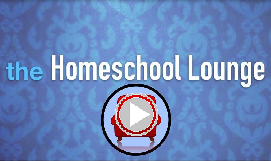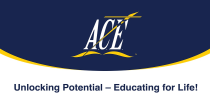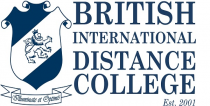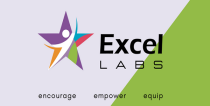Campaign against NCS in 2001
Submission of the Pestalozzi Trust on the National Curriculum Statement on 12 October 2001. This was recovered from the Wayback Machine.
|
|
Note: Opinions on this page are those of the author(s) and do not necessarily agree with those of the Pestalozzi Trust |
|
Submission on the Revised Curriculum 2005 By Pestalozzi Trust legal defence fund for home education12th October 2001 This Trust is honoured to make the following contributions in the interest of a better education for all the children of South Africa. By way of introduction, we wish to record our appreciation of the fact that much work has been done until now on these proposals, and that they represent in many ways and improvement on the previous curriculum. We are also appreciative of the fact that these proposals will, as they explicitly state in many places, determine at the most intimate and at the most extensive level, the very nature of South African people and South African society in succeeding generations. Their effect will be permanent and irreversible. We appreciate, therefore, that these proposals constitute, next to the constitution itself, one of the most important and far reaching documents in our country. ProcedureIn view of the importance of these proposals, we must however also record our concern at the manner in which the proposals have been presented for comment to the people of South Africa. The proposals were announced to the media on 30th of July 2001. They appeared at the same time on the web site of the Department of Education. However, they appeared in .pdf format. For technical and ergonomic reasons, this format makes the documents effectively inaccessible to a large number of internet users and difficult to access for almost everyone. The format also makes the documents themselves almost impossible to manipulate in electronic format, which makes effective discussion of their content very difficult in internet and other forums. We reported these difficulties to Prof Chisholm, to the IT division of the Department and to the Minister’s public relations officer early in August. To no avail. The “Overview” section of the documents was published in hard copy and in electronic format as an appendix to a Government Notice in the Government Gazette on 8th August. The Government Notice also provided the closing date and address for comment. The bulk of the document, however, was not Gazetted. Contrary to the notice in the Government Gazette, the remainder of the document could not be obtained in hard copy from the Department either. It was not before 23rd August that the remainder of the document was delivered to the Departmental head office in Pretoria for distribution. This was 50 days, or less than two months, before the closing date for comment. Only 11 000 copies (with expensive, heavy, space consuming glossy covers, laid out with overgenerous amounts of page consuming white space and repeating two thirds of each booklet in each Learning Area Statement) were printed for 29 000 schools and numerous university and technikons departments, education and technical colleges, teacher unions and professional bodies, employers, learners, parents and the public at large. These copies seem to have been distributed in a most inefficient manner. We have much evidence that many if not most schools remained almost entirely ignorant even of the existence of the document until almost the closing date. By the beginning of October, at least ten days before the closing date, the link to the electronic documents were removed from the Departmental home page. The documents are now buried three or four layers deep in the Department’s rather extensive web site. Inserts describing the document appeared in some news papers towards the beginning of September. However, no public hearings or workshops were arranged for the numerous stakeholders to become aware of and informed about the document. When the Trust itself launched an awareness campaign, we became the target of possibly the most vindictive kind of invective uttered by government officials against their own citizens, and which may well be found to constitute hate speech. It is with regret, therefore, that we submit that we have serious reservations about the procedures followed with such an important document. ContextIt is important to note the context of the raft of laws, regulations and policies on which this curriculum floats. Compulsory school attendanceIn the first place, the parents of all children of given ages are required to compel their children to attend schools that are operated by, or that are registered with the state. Certain exceptions are provided, including the statutory right of parents to register a child for education at home. It is noteworthy that the SA Schools Act (84 of 1996) establishes a regime of compulsory school attendance, and not of compulsory education. Indeed, no meaningful definition of the notion of “education” is provided in any of the education laws. Accordingly, all statutory requirements have been met if only the child is physically present in his or her designated place in a school during school hours. In the case of home education, the law requires, however, that the education that the child receives comply with the minimum requirements of the curriculum in public schools and that it be of a standard not inferior to the standard of education at public schools. In the case of home education, therefore, there is indeed provision for compulsory education, but only to the extent that such education is provided in public schools. QualificationsRecent legislation and current bills provide that children may obtain a General Education and Training Certificate (GETC) at the end of the compulsory school phase (Grade 9). This certificate may only be issued by provincial education departments and by appropriately accredited private schools. It is clear, also, that children may be denied access to further education if they do not possess the GETC. However, a child is not legally compelled to obtain a GETC at the end of the compulsory school phase or at any stage thereafter. In practice, of course, children who are physically present in schools will be effectively compelled to perform the tasks and take part in the activities conducted in terms of the curriculum for the GETC, whether they wish to obtain the qualification or not. Conclusions on the contextThere are two distinct and independent mechanisms involved: On the one hand, parents are legally obliged to compel their children to be physically present in schools at specified times. On the other hand, children are compelled to perform the tasks specified for the GETC whether they wish to receive further education or not The present National Curriculum Statement (NCS) is proposed as the curriculum for the GETC for the compulsory school phase. Fundamental Rights in the NCSIn passing, we note that, as recognised by Chapter 2 of the South African Constitution, every fundamental right that vests in adults also vest in children, except where specifically excluded, such as the right to vote. We note also that, in terms of the child’s right to parental care and in terms of Articles 5 and 14 on the United Nations Convention on the Rights of the Child (UNCRC) the child exercises these rights under the guidance and direction of the parents and not under the guidance and direction of the state. The UNCRC (which was ratified by South Africa and accordingly forms part of our law) further recognises in Article 18.1 the parents as having the primary responsibility for the upbringing and development of the child, relegating the role of the state in this respect to that of an alternative provider in cases where the primary providers may default. The present NCS is presented as a means by which the state will “respect, protect, promote and fulfil” the right to education. We submit that such a claim is highly misleading, on the following grounds: a) The claim might be true if the education contemplated in terms of this curriculum were provided by the state without the element of compulsion or coercion. If such were the case, children could exercise their right to education by freely choosing to receive the education contemplated in the NCS – or choosing not to receive such an education, but to opt for a different education. The availability to children of such a non-coercive education provided by the state would indeed entail a promotion or fulfilment of the right to education. b) The fact of compulsion, however, means that this education in terms of the NCS imposes a duty on children. This, rather than a fulfilment of their rights, constitutes a limitation of their rights. c) Accordingly, the limitations clause of the constitution places a burden on the Minister of education to show that the requirements imposed by this curriculum are reasonable and justifiable. This curriculum, in the context of the surrounding laws, regulations and policies does not, therefore, constitute a means to “respect, protect, promote and fulfil” the right to education. Rather, it constitutes a limitation on the right to education. In down to earth terms: This curriculum forms the core of a set of laws, regulations and policies that compel children to report for forty hours each week (“Overview” p.41) to a place designated by the state, there to perform in company not of his or her own choosing tasks specified by the state under the supervision and constant observation of a person paid or accredited by the state which include requirements to reveal for recording by the state private information of the most intimate kind about his or her body, beliefs, activities, possessions, home and family and requirements to express and demonstrate to the satisfaction of a person appointed or accredited by the state knowledge, skills, beliefs and convictions specified by the state. It is ironic that a system that purports to teach respect for human rights can so grossly infringe the human rights of the learner in the process. This is the worst kind of pedagogy – the kind that says “don’t do as I do, do as I say!” We submit that these impositions on the autonomy of the child are so severe as to place on the Minister a correspondingly severe duty to show the necessity for each and every element in the curriculum, and also to show that each requirement of the curriculum will indeed meet the perceived need and that there is no other, less constricting way of meeting the perceived need. Values in the curriculumIn this curriculum, “values” are considered very important (Chisholm, during radion interview 5/10/01). They are, accordingly, assessed: The curriculum for each learing area is structured in such a way as to: “…Realise the achievement by learners of specific knowledge, skils and values…” (“Overview”, p.12). these values, in turn, have a specific kind of person in mind: “The kind of learner that is envisaged is one who will accordingly be imbued with the values and act…” (“Overview”, p.22). “The Revised National CurriculumStatement has tried to ensure that all Learing Area Stamements are infused with the principles and practices of social justice and human rights as defined in the Constitution….” (Overview, p. 28) It has long been considered (at least since Bloom’s work fifty years ago) that “values” or “attitudes” are legitimate objectives in education or training. In reality, they always have received explicit or implicit attention, probably in all of recorded history. However, there has always been a distinction between those that may be legitimately required, and those that may not. In reality, many “values” identified in this curriculum are, what really used to be known as “good habits” – punctuality, reliability, etc. These have often been an object of teaching and training, and legitimately so. The question, however, is whether the state may compel people under sanction of law or executive fiat to be “punctual”, “reliable” and so on where these characteristics are judged on the state’s terms. There is, also, a major aspect of “values” that are not a legitimate object for compulsory education. These fall in the category of ethics, epistemology, and other aspect of philosophy and religious belief. Certainly, the very notion that “the values of the constitution” can be determined, as happened with the so-called “Saamtrek” conference and what preceded it, by any group selected by the ruling elite and foisted upon the population is an ethical anachronism and constitutional nonsense. The notion that people can be compelled to confess and/or demonstrate that they have “internalised” the purported “values of the constitution” shouts against the constitution itself. The constitution, by providing for its own amendment, protects our right to question and challenge the very values of the constitution itself. If this were not so, the only way in which we could amend the constitution would be by means of violent overthrow. It is, therefore, at the very core of our constitutional dispensation that no one must be compelled to adopt a specific value or belief. The survival of the constitution itself relies on this. Effects of the imposition of valuesIn these proposals, the effect is clear of what happens when values are prescribed – it results in intolerance. In every learning area there are numerous outcomes and assessment standards that demonstrate intolerance towards people who do not subscribe to the purported “values of the constitution”. In History, this means (and this is explicitly stated) that the actions people of different times must be judged, not according to their own value systems and those of the times in which they lived, but according to the purported values of our constitution. Besides being utterly irresponsible historiography, it is silly – it mandates our descendents to judge us, not according to our values, but according to theirs! The result is obvious – it must result in politically correct intolerance towards the ancestors – and the older (living) generation. In Geography, it means that learners must judge people of other places, not according to their own value systems or even according to the constitutions under which they live, but according to ours. The same applies to economics, social systems, symbols of achievement and almost every other sphere of human endeavour. This notion establishes the purported “values of the constitution” as an absolute – an unquestionable norm. And it insists on judging others against that norm. That is fundamentalism in its purest form! Clearly such a notion must result in the kind of intolerance and hate that will turn an aircraft full of commuters into a weapon of mass destruction. RecommendationsWe submit that the NCS, in design and execution, is fundamentally flawed. It cannot be rescued. If it is implemented in its present form or in any form arising from the same assumptions, we foresee decades of strife and litigation. If learning materials are designed according to this curriculum, we foresee warehouses full of brand new learning materials having to be pulped if courts order that they may not be used. Accordingly, we recommend as follows: a) The curriculum be reviewed ab initio. b) All assessment of values be forbidden. c) The values to be modelled to learners in a school be determined by the parents, the community and the governing body. d) The fundamental rights of the learners, including their right to parental care, their right to privacy and their right to freedom of conscience be strictly protected. e) All learning materials to be purchased and used subject to the approval of the governing body or the parents as the case may be. |
|
|
Events
Legal & Research
Centres
Homeschool ABC
Support
Curriculums
GED through Learnalot - Grade 12 ...
Why enrol with Learnalot? With Learnalot, you have the flexibility ...
Impaq: Homeschool & Online ...
Impaq: The leading homeschooling curriculum provider in South ...
Has no content to show!
































